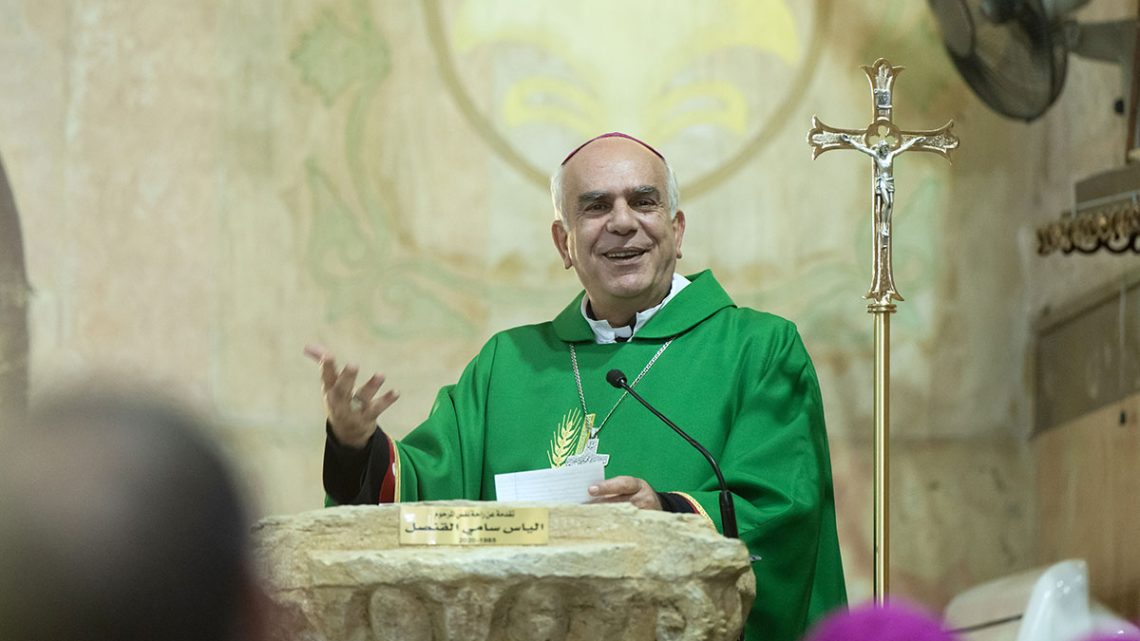
Bishop Jamal Daibes, Patriarchal Vicar of Jordan, has offered some reflections in a homily during the recent Holy Land Co-ordination visit to Jordan, saying that Christians “belong” to the Holy Land, and have a rich experience of “dialogue and coexistence with Muslims”.
His full homily is below:
“We are Catholics, and we are part of the universal Catholic Church, but living in the Holy Land adds something important to our Christian identity and mission.
We belong to this land, the land of Jesus, the land of our Fathers in faith. Rooted in this land that witnessed the first Christian community. Christians who fled from Jerusalem after the persecution of the first century came to Jordan, and formed a community, before getting to Antioch. Our Church was always present for the last 2000 years.
We have “familiarity” with the Bible: same land, same towns and villages, the geography and topography of the Bible and its culture.
We witnessed our faith in Jesus Christ throughout history. History was not always easy; we lived our faith for centuries, and we will continue to stay.
We see ourselves as custodians of the holy land (not in a legal way!); we want pilgrims from all over the world to come and meet the living stones of the Holy Land and to welcome them in the name of the universal church.
We lived for fourteen centuries with Islam. We have an experience in dialogue and coexistence with Muslims. We share the same culture, language, history, and destiny. We can contribute to the dialogue of the whole church with Islam.
The mission of our church in this land is to be at the service of everyone, beginning with the Christian community. The church institutions are open to everyone, to serve everyone, in education, health, care… Our mission is to proclaim the Gospel of Jesus Christ, the Gospel of peace, love and human dignity, with all the diversity in the different parts of our diocese.
We are part of the universal church, as one body in Christ. What we may call “solidarity” with our church from different churches is a real “communion” in Christ. Your support allows us to do our mission in this land. Your presence among us is a concrete sign of “being church”.
Your visit is more than a pilgrimage, it is a visit of communion. In the first centuries, bishops used to send “letters of communion” to other bishops to make them feel part of the church. Today, your visit is a “visit of communion”, that we belong to the same church, with Christ as the head of the Church, and we are His body.
Thank you for your presence among us, for your prayers and for your support.”




